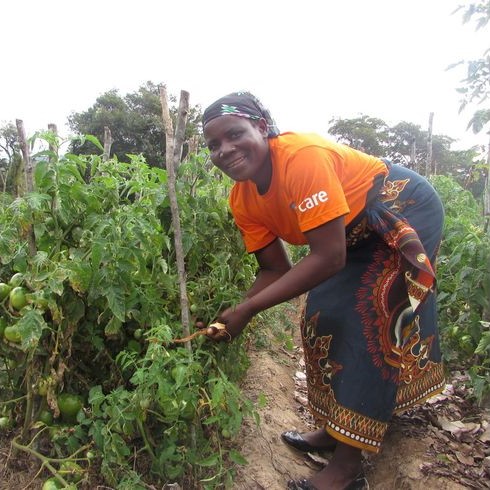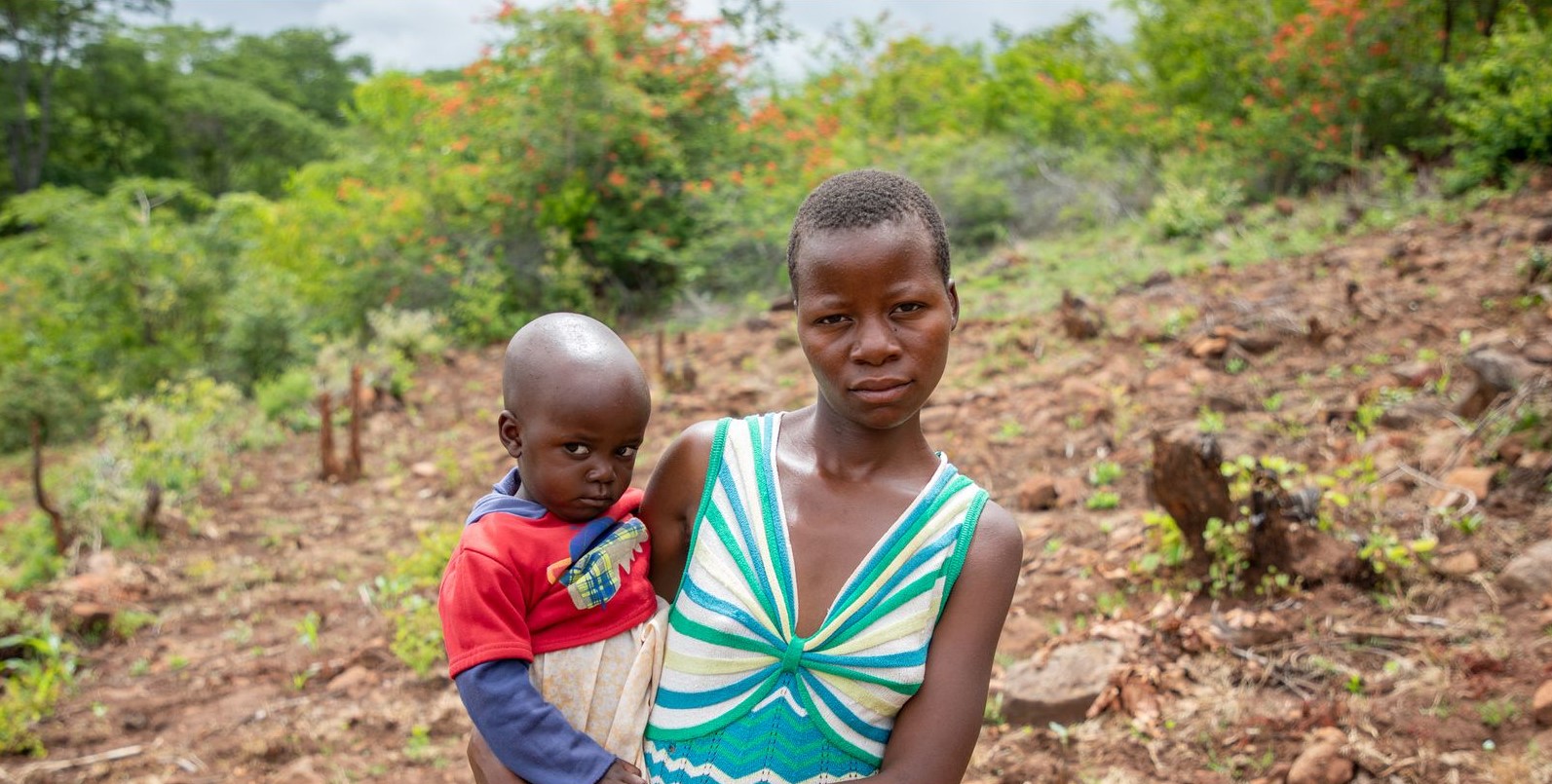
« I’m crying for my beloved rural women »

Southern Africa is currently experiencing a record-breaking drought caused by the El Niño weather phenomenon and the intensifying climate change. Eight countries - Angola, Botswana, Madagascar, Malawi, Mozambique, Namibia, Zambia, and Zimbabwe - are affected. This has led to water shortages, widespread crop failures, and an alarming number of livestock losses. The situation is catastrophic and demands urgent action.
After participating in a conference about the droughts in southern Africa, organised by CARE, Ayleen Christnach, Emma Ludwig and Alizée Wegner form the 3e section of Lycée Michel Rodange of Luxembourg, have done research on how the everyday battle against humanitarian crises of people in Zimbabwe has a bigger impact on women.
Zimbabwe is located in the south of Afrika. Over decades the country was the granary of the region but finds itself today in a desperate situation where it depends on foreign assistance, but international attention and support is lacking. Zimbabwe with a surface of 390,757 km2 and a population of 16.7 million has its main source of income in agriculture. To be more specific, 70%. It is therefore clear that the people in Zimbabwe need their agriculture to survive but the climate crisis has a huge impact on productivity.
Climate Change pushes the population into crises
Zimbabwe has suffered from extreme droughts. With an already critical 19% of the people suffering and struggling with malnutrition, these natural disasters will only force those numbers to climb dramatically. Currently, we are looking at at 2.7 million inhabitants in serious need. Droughts do not only bring problems in agriculture but also in hygiene which leads to diseases like typhoid and cholera. These diseases are spreading even faster due to the severe lack of hygiene.
Women, first affected by crises
Among the 2.7 million inhabitants in need, women are the most affected. This is because men have a higher status in their society than women and children. Women, and girls in particular, have to sacrifice a lot to assure the survival of their families. To do so, they adopt negative coping strategies such as, early marriages, dropping out of school to start working or spending their days in fetching water.
« I’m crying for my beloved rural woman »
Alice K. is representing the voice of rural woman at international conferences Alice K. often attends these conferences and works with aid organizations such as CARE to make the concerns and needs of these women heard. Through people like her, the world is getting a clearer picture of the devastating problems of women in Zimbabwe. By participating in one of these conferences, Alice K’s commitment became very visible.
What needs to be done
There is no quick fix to resolving the problem of food insecurity in the Zimbabwe and Zambia, but there is still hope. But this hope will only grow if it’s fueled with urgent measures. Urgent actions such as raising international awareness of the problems.
There’s a great need to support regional and national cooperation. To withstand the problem concerning agriculture, inflation has to be minimized, particularly the cost of living and the cost of fertilizer. Leadership positions should be held by locals, a strong force led by man AND women. Zimbabwe like many other countries depends on the support of organizations like CARE.
The responses to the problem must be driven by knowledge and data. As Matthew P., participant just like Alice K. In a conference, states « we have to build for the future ».
Ayleen Christnach, Emma Ludwig and Alizée Wegner form the 3e section of Lycée Michel Rodange of Luxembourg,
may 2024
Disclaimer
Toutes les opinions exprimées par les « Correspondants Humanitaires » sont uniquement leurs opinions actuelles et ne reflètent pas les opinions de CARE International, CARE Luxembourg a.s.b.l., d'autres bureaux de CARE et leurs affiliés. Les opinions des « Correspondants Humanitaires » sont basées sur des informations qu'ils considèrent comme fiables, mais ni CARE Luxembourg a.s.b.l., ni ses affiliés et partenaires ne garantissent leur exhaustivité ou leur exactitude, et elles ne doivent pas être considérées comme telles.
Les « Correspondants Humanitaires » sont des étudiants (pour la plupart mineurs) des lycées luxembourgeois qui ont participé à trois ateliers guidés par CARE Luxembourg a.s.b.l. et ont été chargés de faire leurs propres recherches sur les pays proposés. CARE Luxembourg a.s.b.l. se réserve le droit de modifier la forme des articles mais ne changera pas le contenu du matériel afin de respecter le travail des étudiants et leurs points de vue.
